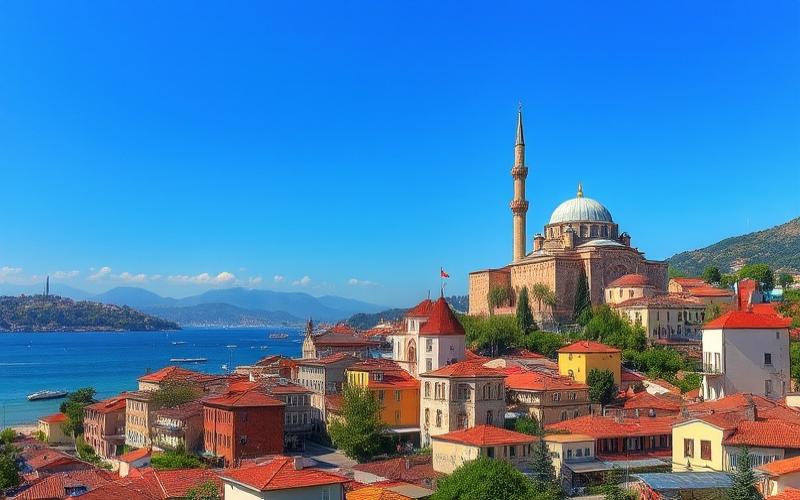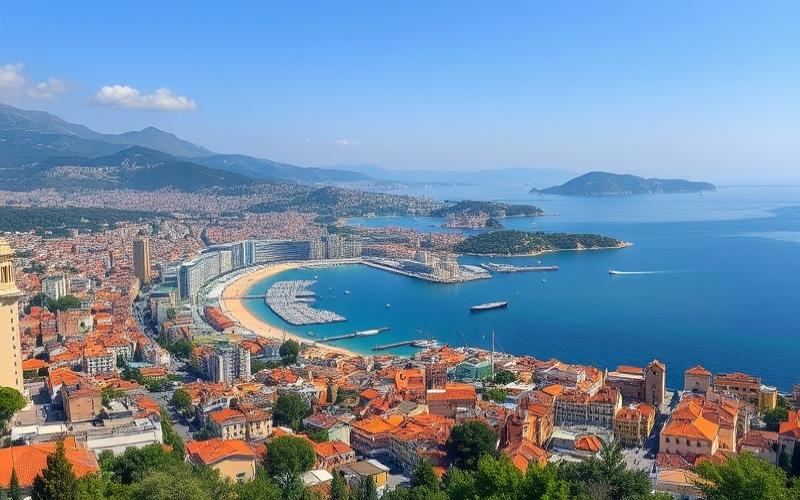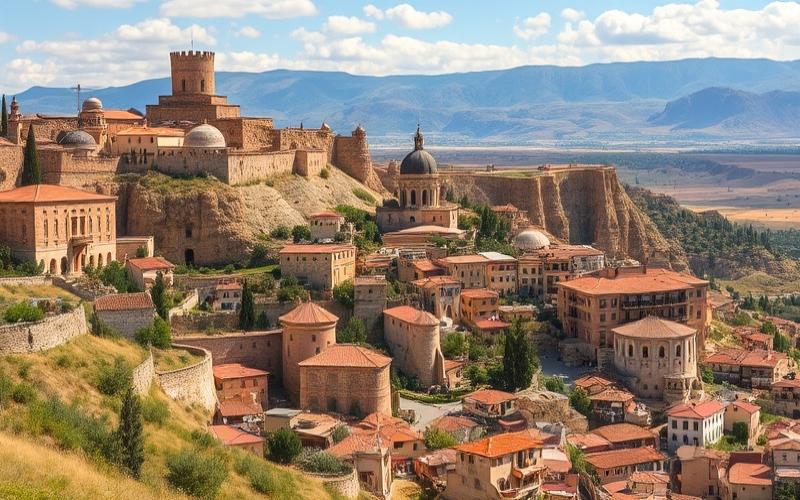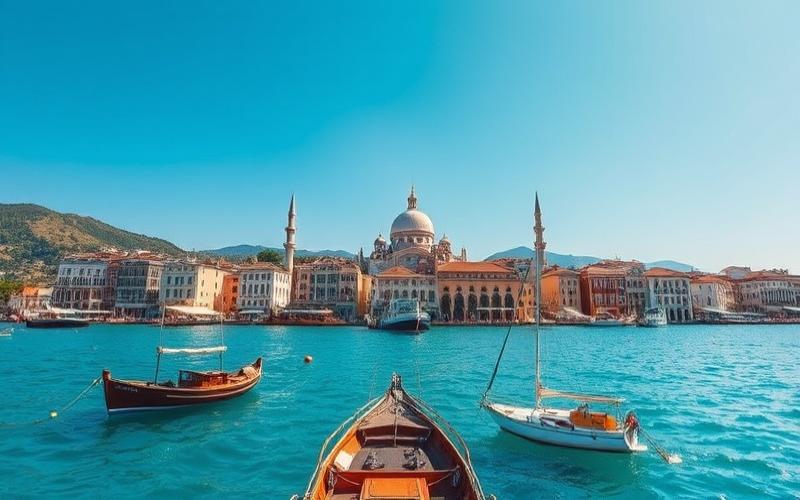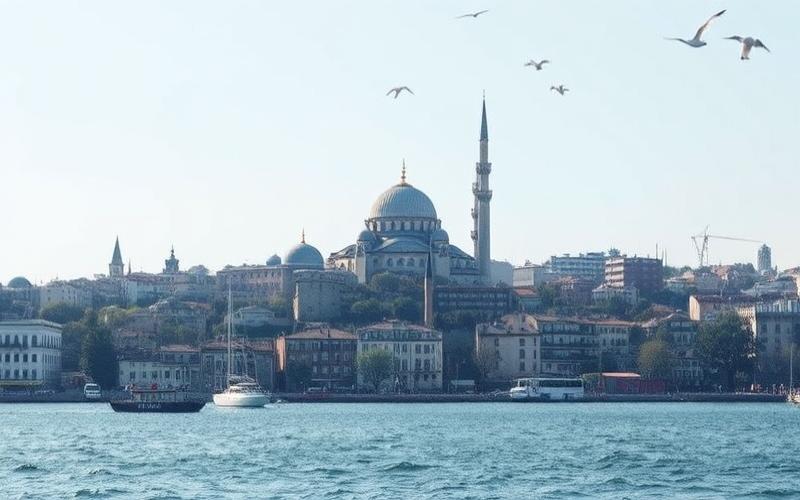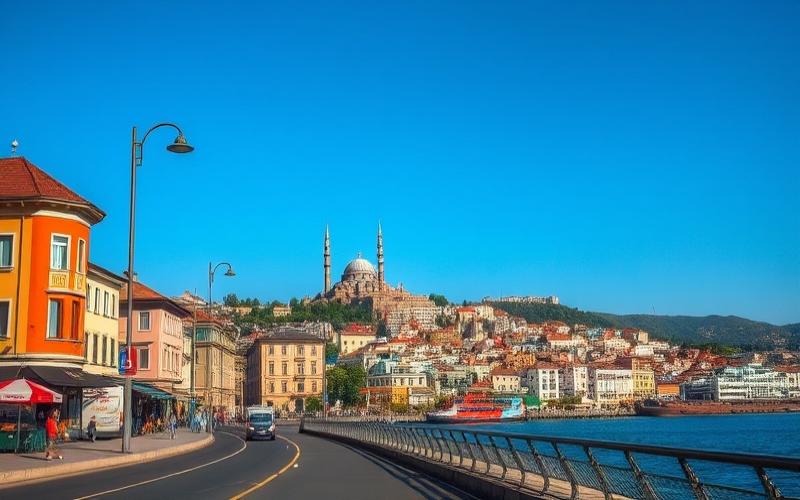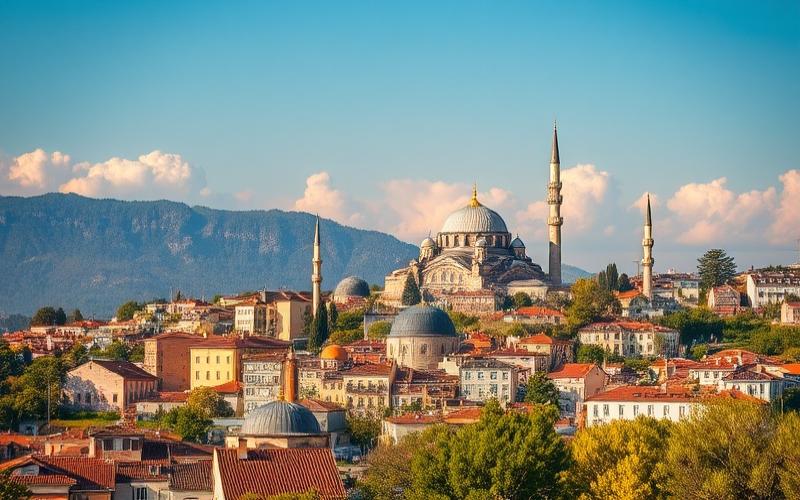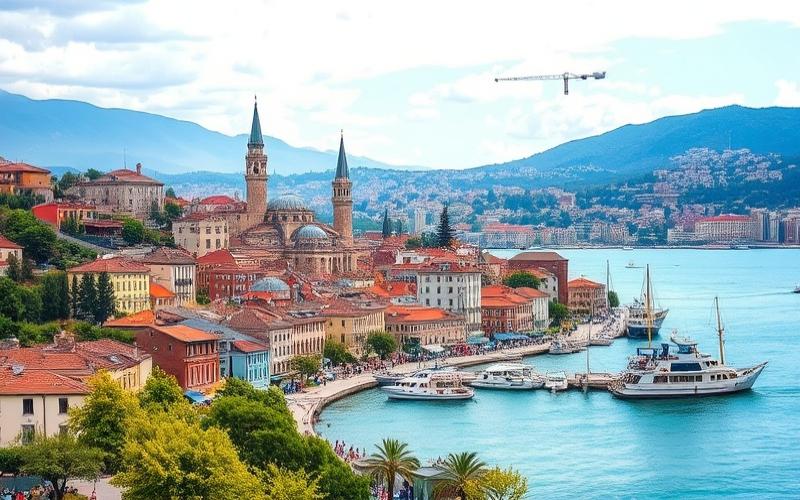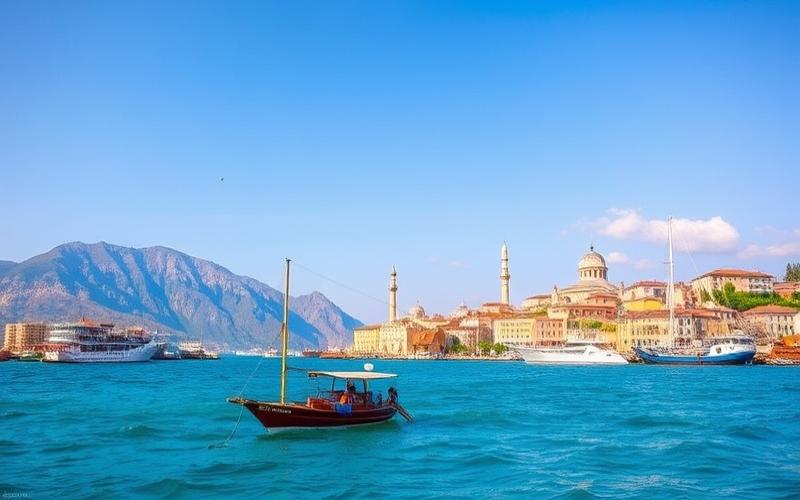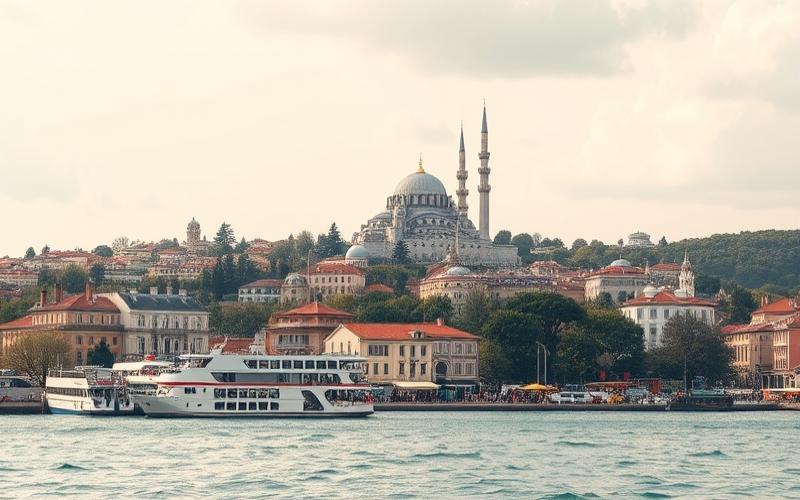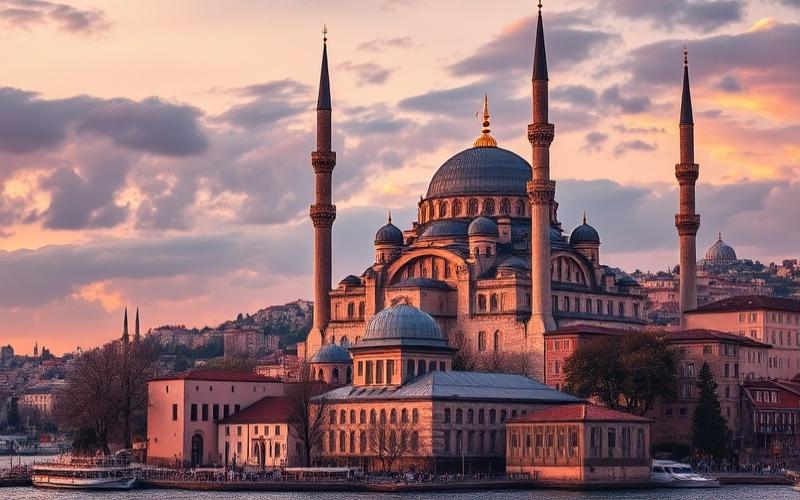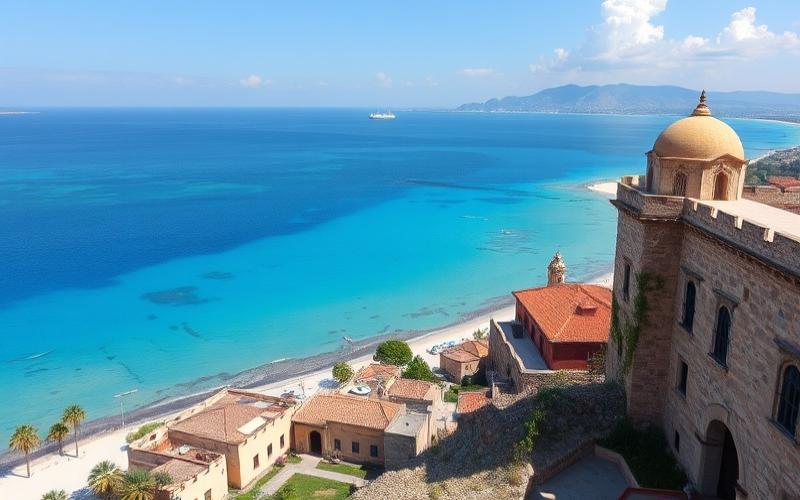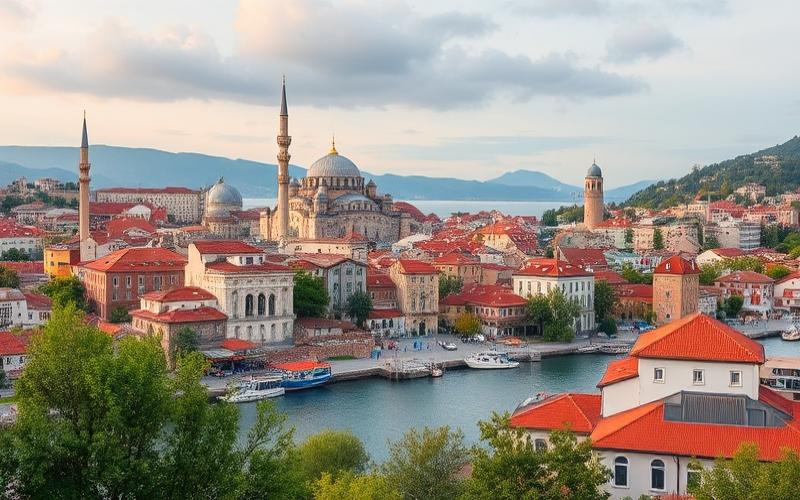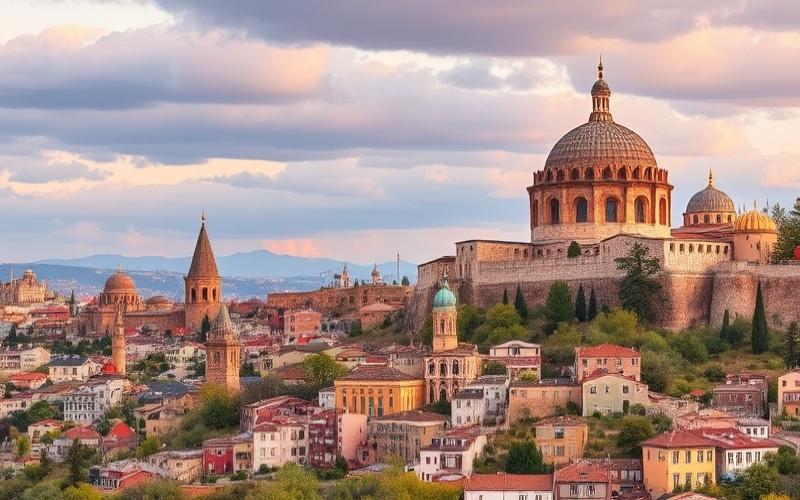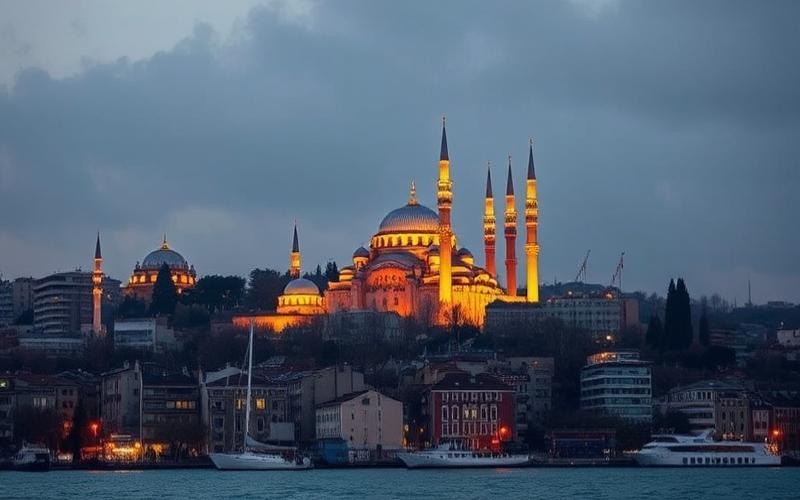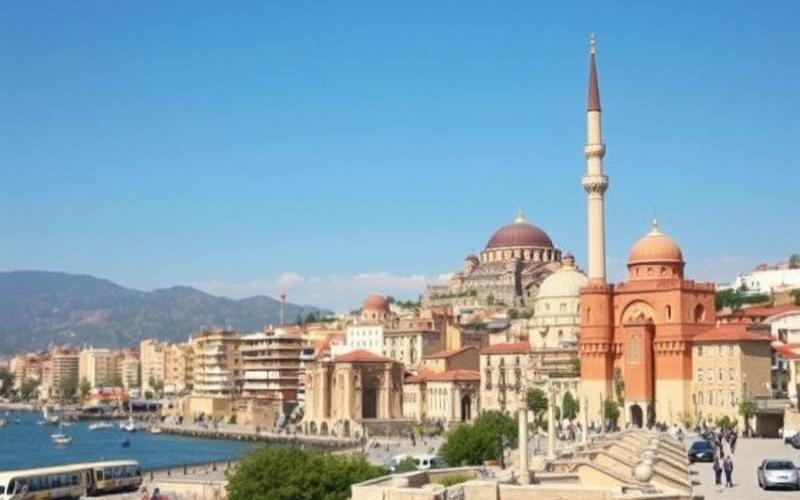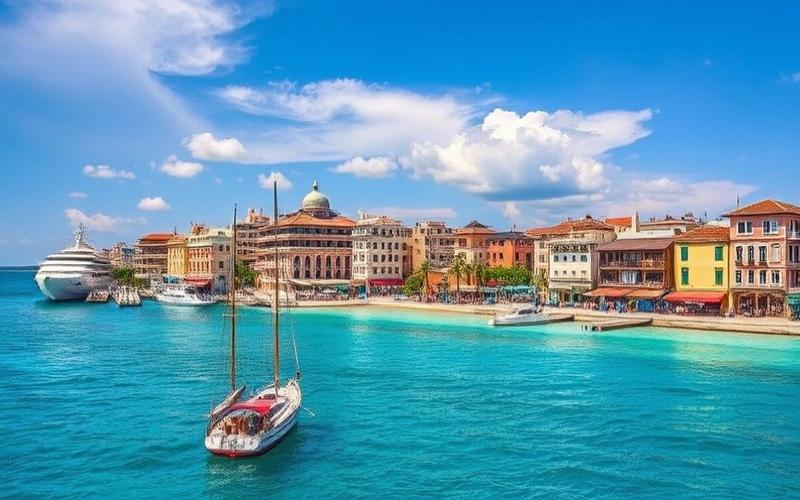
 Published on and written by Cyril Jarnias
Published on and written by Cyril Jarnias
Relocating to Turkey is an exciting adventure, but essential safety considerations must be taken into account to fully enjoy this experience. This fascinating country, at the crossroads of East and West, offers a unique blend of cultures, histories, and landscapes, attracting many expatriates each year.
However, to ensure a pleasant stay, it’s crucial to familiarize yourself with local realities and adopt preventive behaviors. This article provides practical and relevant advice for living in Turkey with peace of mind, based on updated information and testimonials from experienced expatriates.
Turkey: A Safe Destination for Expatriates?
Turkey is considered an overall safe destination for expatriates, especially in its major cities and tourist areas supported by strong police presence and modern infrastructure.
Recent Safety Statistics:
| City | Major Crime Trends (2025) | Resolution Rate |
|---|---|---|
| Istanbul | -9% crimes against individuals | 99.4% |
| Istanbul | -27% property crimes | — |
- In 2025, Istanbul recorded a significant decrease in major crimes, with a 9% drop in serious crimes and nearly 27% for property offenses.
- The resolution rate reached an exceptionally high level (99.4%), demonstrating remarkable police efficiency.
International Comparison:
- Turkey displays an overall safety level comparable to many European or North American countries. Tourist areas are particularly safe, with few serious incidents reported.
- Risks related to crime are generally lower than those observed in several major Western metropolitan areas.
Government Measures to Ensure Safety:
- Strengthened migration control through Mobile Migration Points (+64% foreigners checked in early 2025).
- Priority given to public order without compromising fundamental rights.
- Creation of special secured zones in sensitive border sectors.
- Increased police presence in urban and tourist centers.
Particularly Safe Areas to Live:
Recommended List:
- Istanbul (central neighborhoods like Kadıköy, Beşiktaş)
- Ankara (Cankaya)
- Antalya (tourist coastal area)
- Cappadocia
Areas to Avoid:
- Borders with Iraq and Syria
- Southeast and northeast of the country
Summary Table:
| Area | Safety Level |
|---|---|
| City Centers | Very Safe |
| Rural Areas | Moderately Safe |
| Southern/Eastern Borders | Avoid |
Expatriate Testimonials:
“Most of the time I feel as safe as in Europe.”
“Turks are welcoming; I’ve never had the slightest issue during my daily commutes.”
“In Istanbul, you just need to avoid certain neighborhoods late at night like anywhere else.”
Expatriates mostly report positive feelings about their daily safety. Social integration also facilitates mutual respect and access to local resources.
Practical Tips for Daily Safety:
Essential List:
- Choose neighborhoods known for stability (Kadıköy/Istanbul; Cankaya/Ankara; Lara/Antalya).
- Avoid any travel near southeastern/southwestern borders or during political demonstrations.
- Stay informed via local/international media about security news.
- Prefer official taxis or recognized apps for nighttime travel.
- Integrate locally through French-speaking associations or international social groups (expat clubs, community networks).
- Note the Turkish national emergency number: 112
- Regularly consult your embassy in case of incidents or urgent administrative needs.
Available Useful Resources:
- Embassy/Consulate
- Local platforms dedicated to expatriates
- Multilingual municipal services
By adopting these simple and effective measures and remaining vigilant about specific risks identified by local authorities, living in Turkey proves reassuring for the vast majority of foreign residents.
Good to Know:
Turkey is generally considered a safe destination for expatriates, with crime rates slightly lower than many European countries. The Turkish government has implemented rigorous security measures, particularly in major cities like Istanbul and Ankara, which are often perceived as especially safe for expatriates. Many expatriates report positive experiences regarding their sense of safety, indicating that the key lies in choosing reputable neighborhoods such as Etiler in Istanbul or Çankaya in Ankara for their security. Expatriates are advised to foster social integration to strengthen their local network, thereby contributing to better personal safety. Local resources, such as expatriate associations and mobile safety apps, are valuable assets. It’s important to stay informed about local guidelines and follow recommendations, such as avoiding isolated areas at night.
Tips for Living Safely in Turkey
Understanding Local Culture and Integrating Easily:
- Observe social codes (politeness, respect for elders, discretion about private life).
- Dress appropriately, especially in traditional or religious neighborhoods.
- Greet with a handshake or slight nod; avoid overly familiar gestures with strangers.
- Learning a few basic Turkish words greatly facilitates integration.
- Respect Ramadan and other local holidays (avoid eating/drinking in public during the day at these times).
Neighborhoods Generally Considered Safe for Living:
| City | Recommended Neighborhoods |
|---|---|
| Istanbul | Beşiktaş, Kadıköy, Şişli, Nişantaşı, Ataşehir |
| Ankara | Çankaya (especially Gaziosmanpaşa), Kavaklıdere |
| Izmir | Alsancak, Karşıyaka, Bornova |
| Antalya | Lara, Konyaaltı |
Secured residences (“site” with security guards) are also highly sought after by expatriates.
Familiarizing Yourself with Local Laws and Emergency Numbers:
- Always carry a copy of your passport or residence permit.
- Never photograph military installations or participate in public demonstrations without explicit authorization.
- Stay informed about specific rules regarding alcohol consumption and public behavior.
Important Numbers:
- Police: 155
- Ambulance: 112
- Fire Department: 110
Save these numbers in your phone upon arrival.
Useful Apps/Platforms for Real-Time Information:
- AFAD Deprem (earthquake alerts)
- EGM Mobil (police security information)
- WhatsApp/Facebook local expatriate groups
- Twitter/X to follow #deprem or #istanbulnews during major events
- French Ministry’s Fil d’Ariane app to receive official alerts
Essential Daily Measures:
Personal Safety:
- Avoid displaying jewelry/valuables in public places or transportation.
- Be vigilant during nighttime outings; prefer official taxis over informal ride-sharing after midnight.
- Choose to walk on well-lit and busy streets; avoid isolated alleys late at night.
Transportation:
- Keep bags closed in front of you in crowded metro/buses.
- Prefer contactless payment over cash when possible.
Daily Life:
- Always check your consumption/bar tab before payment.
- Refuse drinks/food offered by strangers.
Building a Strong Social Network:
- Participate in events organized by French-speaking/local associations/federations
- Use Facebook/WhatsApp “Expatriates Turkey” groups
- Establish contact with direct neighbors upon moving in
- Seek advice from local colleagues
- Join sports/cultural clubs mixing expatriates & Turks
A reliable social circle is essential: it not only enables better integration but also offers practical mutual support and personalized advice in any delicate situation.
Good to Know:
To live safely in Turkey, it’s essential to immerse yourself in the local culture, which can be facilitated by learning basic Turkish phrases to show your interest and respect. In Istanbul, prefer neighborhoods such as Beşiktaş or Kadıköy, and in Ankara, Çankaya is often recommended for its safety. Familiarize yourself with local laws, particularly regarding dress codes and respect for religious sites, and always keep emergency numbers like 112 for ambulance and police with you. To stay informed about news and security alerts, apps like AFAD and platforms such as Turkish News are useful. Maintain heightened vigilance, especially at night, and be cautious in public transportation to avoid pickpockets. Building a network with other expatriates or locals can provide valuable advice and specific warnings related to your residential area.
Enhancing Your Safety in Turkey: Essential Tips
Enhancing Your Safety in Turkey: Essential Tips
Securing Your Home
- Install sturdy locks on main doors and check window strength.
- Prefer apartments equipped with an intercom or video surveillance system.
- Consider installing an alarm or using security services in residential buildings.
- Keep valuables in a secure safe and avoid leaving items visible from outside.
Staying Informed
- Regularly consult local press, social media, and mobile apps to follow security news (demonstrations, incidents).
- Scrupulously follow instructions issued by local authorities, especially during unexpected events or gatherings.
- Be prepared to adjust your travel plans according to the evolving local context.
Neighborhoods Recommended for Safety
| City | Recommended Neighborhoods | Characteristics |
|---|---|---|
| Istanbul | Sultanahmet, Beşiktaş, Kadıköy | Very touristy and well-monitored |
| Ankara | Çankaya, Kavaklıdere | Diplomatic and residential neighborhoods |
| Izmir | Alsancak, Karşıyaka | Lively centers with strong police presence |
Avoid the southeastern part of the country (Syrian and Iraqi borders), as well as any area hosting demonstrations or political gatherings.
Establishing Reliable Local Contacts
- Identify a trusted neighbor or shopkeeper who can inform you about the neighborhood.
- Regularly communicate with reception if staying at a hotel to obtain updated local security information.
- Consider joining an expatriate community that often quickly relays any notable incidents.
Registering with the Consulate
Report your presence via the dedicated service (Fil d’Ariane) or directly with the consulate/embassy.
This allows:
- Quick receipt of alerts in case of crisis
- Easy contact by French authorities if needed
- Acceleration of certain administrative procedures
Safety in Public Transportation
Practical Tips:
- Be particularly attentive to pickpockets in metro, buses, and trams; keep bags closed in front of you.
- Always prefer official taxis (BiTaksi/Uber); refuse those without activated meters.
- Prefer traveling during peak hours to avoid isolation but remain discreet about personal items.
- Avoid poorly lit areas around stations late at night.
Common Scams to Avoid
- Do not get into unofficial taxis or those without activated meters; always ask the driver for a preliminary estimate.
- Beware of fake guides offering services spontaneously near major monuments. Verify their official accreditation before any paid service.
- Politely decline overly insistent offers from street vendors or shoe shiners—prices are often inflated for tourists.
For any extended travel outside major Turkish cities: systematically share your itinerary with a reliable local person or register it via Fil d’Ariane/consulate so you can be easily located if necessary.
Good to Know:
To enhance your safety during your expatriation in Turkey, consider installing sturdy locks and using surveillance services to secure your home. Stay informed about local news and follow authorities’ advice; it’s also wise to establish reliable local contacts for valuable information about your environment. When traveling, choose neighborhoods recommended for their safety and register with the consulate to receive security alerts. Use public transportation cautiously and beware of common tourist scams, such as fake guides or souvenir sale frauds. These precautions will help you navigate your new life in Turkey with peace of mind.
Disclaimer: The information provided on this website is for informational purposes only and does not constitute financial, legal, or professional advice. We encourage you to consult qualified experts before making any investment, real estate, or expatriation decisions. Although we strive to maintain up-to-date and accurate information, we do not guarantee the completeness, accuracy, or timeliness of the proposed content. As investment and expatriation involve risks, we disclaim any liability for potential losses or damages arising from the use of this site. Your use of this site confirms your acceptance of these terms and your understanding of the associated risks.


